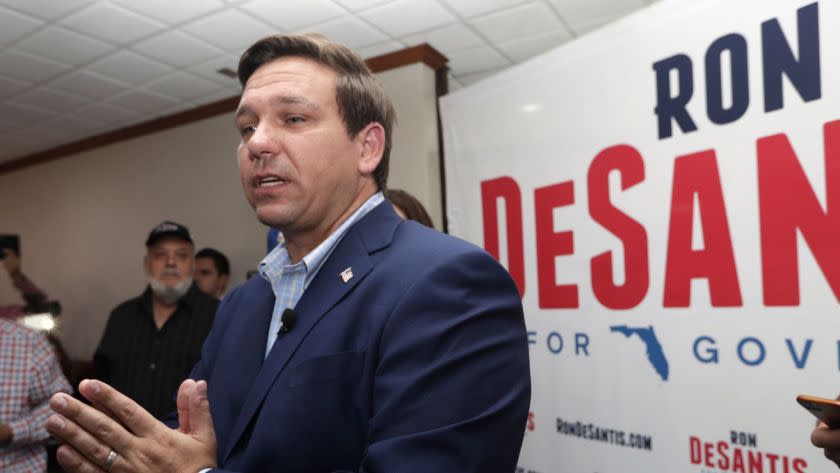Opinion: The Supreme Court — again — shamefully makes it hard for Americans to vote

On Thursday the Supreme Court, responding to an emergency appeal, issued an order that will make it impossible for thousands of former prison inmates convicted of felonies to vote in Florida's primary election. It’s an ominous ruling in an election year already thrown into confusion by the COVID-19 pandemic and haunted by the specter of partisan disputes about voter fraud and voter suppression.
In 2018, Florida voters approved a constitutional amendment restoring the right to vote for most people convicted of felonies after they completed all terms of their sentence, including parole or probation. But implementation of the amendment has been complicated by enactment of a law, signed by Republican Gov. Ron DeSantis, that requires would-be voters with felony convictions to pay outstanding fines and fees and make restitution before being allowed to vote.
U.S. District Judge Robert L. Hinkle found several problems with what he called a "pay-to-vote system,” including its impact on former inmates who were indigent. The judge also required the state to allow many convicted felons to vote if they weren’t given a timely answer about their financial obligations.
The U.S. 11th Circuit Court of Appeals stayed the district court order, and on Thursday the Supreme Court rejected a request that it lift the stay. The timing is fraught. Floridians have until next Monday to register for the Aug. 18 primary. (Aug. 18 is also the day the appeals court will hear arguments on the district judge’s ruling.)
Justice Sonia Sotomayor, joined by Justices Ruth Bader Ginsburg and Elena Kagan, dissented from Thursday’s order. Sotomayor recited the tangled history of the litigation but focused, rightly, on the effect of the court’s action: “This court’s order prevents thousands of otherwise eligible voters from participating in Florida’s primary election simply because they are poor.”
Sotomayor also referred to the fact that a majority of the court also had acted in April to prevent the extension of the deadline for mailing absentee ballots in Wisconsin, which was coping with the challenges to voting posed by COVID-19.
In that case, the majority in an unsigned opinion had cited a 2006 decision in which the court had cautioned against rulings about election procedures close to Election Day. But Sotomayor suggested that the majority was misapplying the precedent in both cases.
Even if there was no pandemic, courts should err on the side of allowing Americans to exercise the franchise. But as worrisome as the results in these rulings is the fact that the justices divided on party lines. All four Democratic appointees dissented in the Wisconsin case; only Justice Stephen Breyer among the Democratic appointees failed to join Sotomayor’s dissent on Thursday. (That doesn't mean Breyer necessarily agreed with the majority.)
Imagine that the court divides along similar lines in a case dealing with a disputed 2020 presidential election. Chief Justice John G. Roberts Jr., who has pressed for moderation and consensus in other areas of the law, should ponder that frightening possibility.

